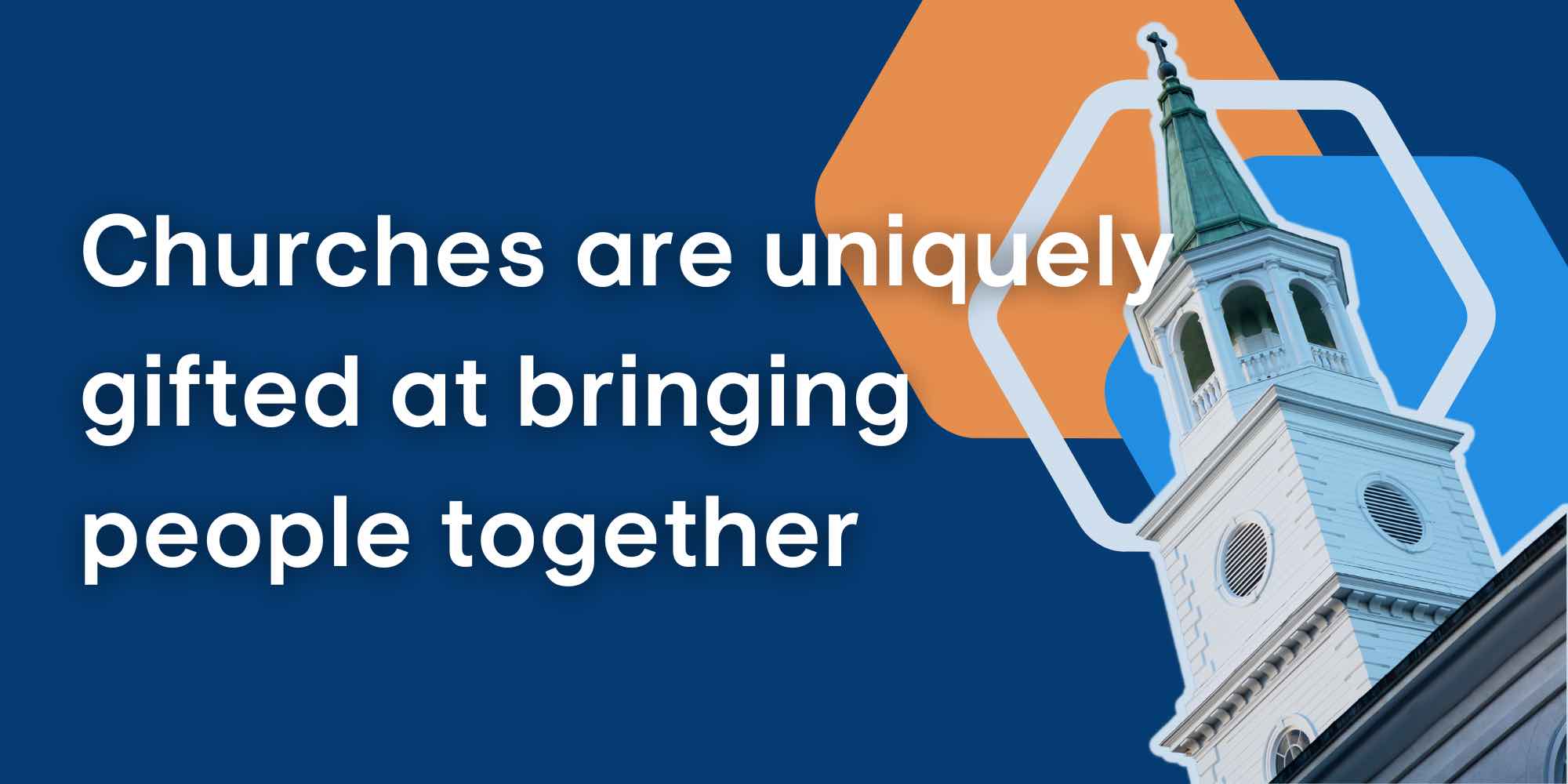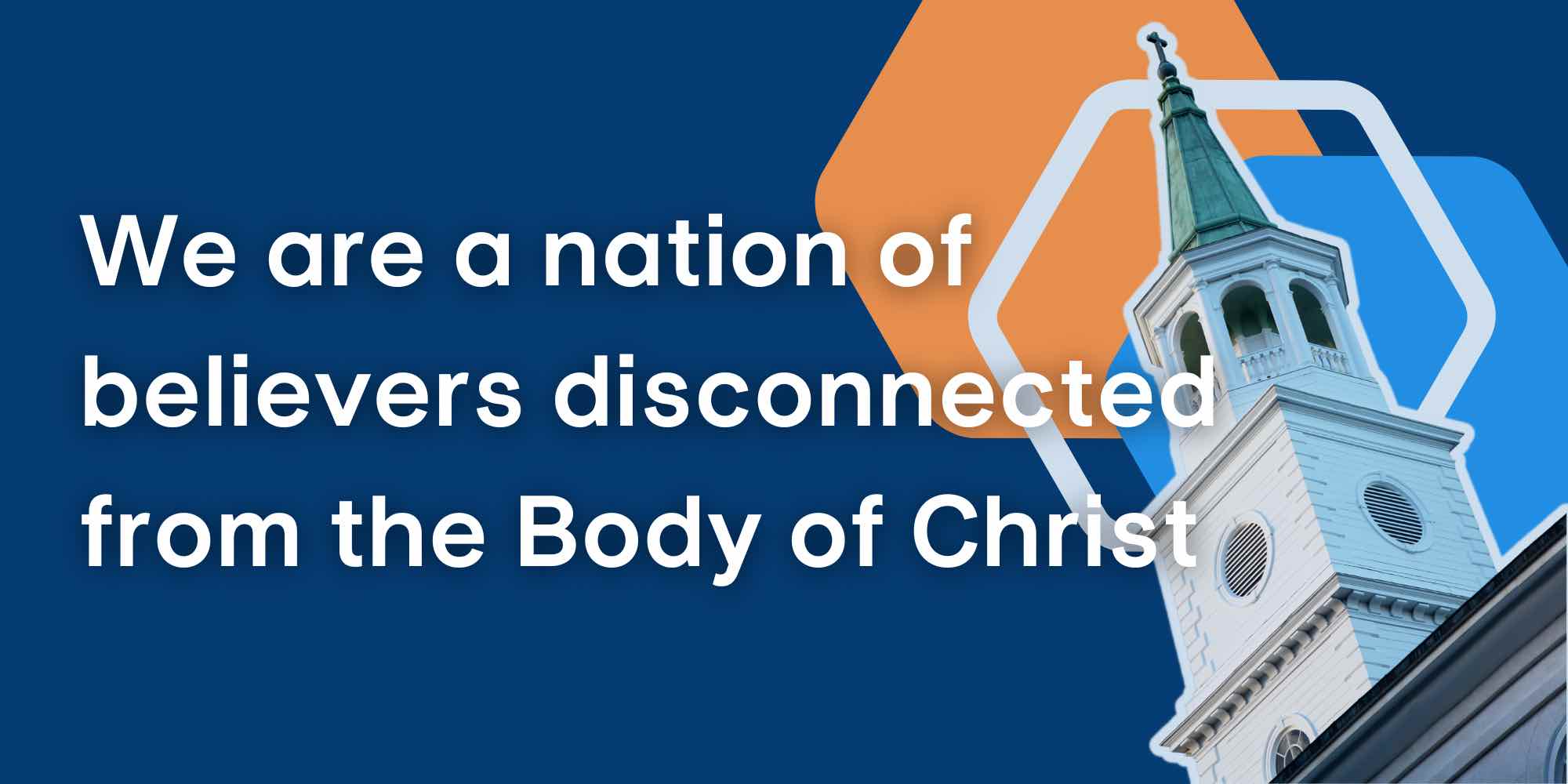Why The Decline in Church Attendance is a Public Health Crisis

Religious affiliation has been in decline for the last two decades. Then the COVID-19 pandemic arrived, accelerating this decline.
But this crisis can give churches an opportunity for reflection.
We'll cover the reasons behind the decline in church attendance and examine how it can have a negative impact on society. Thankfully, there are a few ways the church can address this issue and reverse the problem.
Church Communities Prevent Poor Health Outcomes
When attendance decreases, individuals may feel isolated and disconnected from their communities, leading to feelings of loneliness and depression.
But studies show that women who attend religious services once a week see a 33% reduction › in cancer and cardiovascular mortality. This means that regular religious attendance not only improves mood and mental health but has implications for our physical health!

This spells tragedy for those drifting away from the church. Not only is their absence creating the church attendance decline we see today, but it affects their own personal well-being.
Stronger Churches Improve Public Health
Churches and para-church organizations are the most important institutions in our society for addressing public health issues, like addiction and homelessness.
American Christians raised $135.78 billion in 2022 › On average, a small church (under 200 members) devotes roughly one-third of its budget to local missions and outreach. That means the American church at large puts billions of dollars a year toward helping the helpless.

Steady church attendance has also been shown to cultivate a sense of civic duty. Regular church attendees are more likely to volunteer their time › toward social causes and have higher rates of civic engagement.
As church attendance declines, so will church giving. This will result in a decline in support for the needy and the organizations that serve them. The resources funded by church donations may become less available, leaving the most vulnerable people without the help they need. This could lead to increased poverty, homelessness, addiction, and other public health emergencies.
Spiritual Health Is Mental Health
Churches and small groups are where faith is deepened and personal connections are made. These connections offer comfort and support during difficult times.
As people leave the church, they lose that spiritual support system, leading to a decline not just in their spiritual well-being, but their social and mental health declines as well. Unless they find a social network that fully replaces the church, this disconnect can lead to increased anxiety and stress. Others may struggle to find purpose or meaning in life, leading to increased suicide rates ›
The decline in church attendance is a public mental health crisis. As people abandon religious participation, their mental health condition can worsen.
Stronger Churches Make A Strong Society
Frequent church attendance sees a 50% reduction › in divorce rates and aids in reducing rates of substance abuse. As I mentioned earlier, it also increases rates of civic engagement. Adolescents raised in church are more likely › to be registered voters and have a positive view of their impact on politics.
Our churches serve as a source of social and cultural cohesion. When attendance declines, this cohesion may be lost, leading to a fragmented society.
Churches are uniquely gifted at bringing people together. Regular attendance offers a person belonging and community they often won't find elsewhere.

Churches are perfectly equipped to address the loneliness crisis › in America. When we function as a network of people and resources, people develop a sense of purpose and connection. A society of empty churches is a society with a weakened social fabric.
Why is there a decline in church attendance?
Before we can address what the church can do about our current crisis, it would be worth our time to consider the causes of the decline in church membership.
In March 2021, Gallup released a study › that found US church membership had dropped below 50% for the first time. Pew Research found › that 63% of Americans self-identify as Christian, down from 78% fifteen years ago.
It's easy to assume the cause for the decline is due to highly publicized scandals and grave failures of church leaders. Or perhaps due to the political divisions that overwhelmed society.
Those reasons are certainly factors in some people's decision to abandon the church. However, the reason for the decline may not be so obvious.

The #1 Reason People Don't Attend
When asked why they no longer attend church › people overwhelmingly give the same answer:
Belief in God is still very high in the US. A reported 81% of Americans › state they believe God exists. Though this is down from 92% in 2011, that is still a remarkably high number given the precipitous decline in church membership and religious affiliation we're seeing.
Many Practice Apart From Church
Ultimately, the past decade has seen the rise of "spiritual, but not religious" Christianity in the US. They maintain belief in God but opt to practice privately › instead of gathering with other believers.
This adds up to one thing: We are a nation of believers disconnected from the Body of Christ.

How the Church Can Address the Public Health Crisis
You can find numerous articles › encouraging church leaders to move on and no longer wait for people to return to church. Granted, there's wisdom in no longer passively waiting for The Great Return.
But this misses an important lesson in the Gospels. Jesus reveals that each person is so important to God that He will stop at nothing to find them. That applies to both people that have never been to church and those that have wandered away.
Pursuing lost sheep
The answer to the church attendance decline is to stay focused on the two things the church has always been called to do:
- Go after the sheep that have wandered ›
- Bring new sheep into the fold
As always, we are to be evangelistic, taking the Good News to people and places who have never heard it. But we cannot wash our hands of the faces we used to see in the sanctuary with us. We are our brother's (and sister's) keepers, after all.
The church cannot afford to abandon either part of her mission.
In conclusion
It's clear the decline in church attendance is harmful to society. Churches provide individuals with moral guidance, belonging and community, spiritual fulfillment, support for vulnerable members of society, and social cohesion.
As attendance declines, these benefits are lost.
But the Christian church can address these growing problems by answering the call to pursue lost sheep.

|
Matt
|